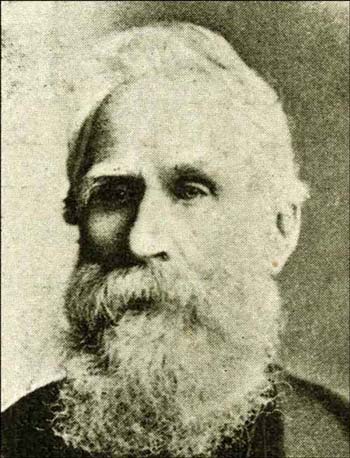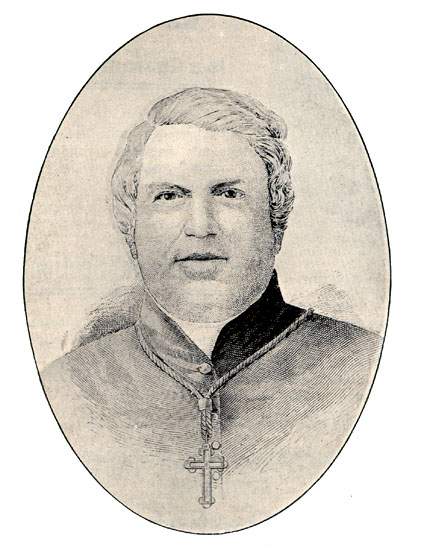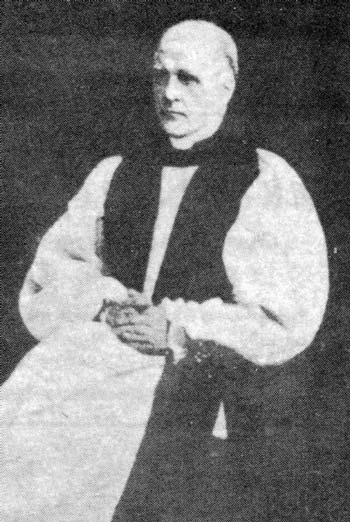Shift Towards Responsible Government
The introduction of responsible government became a central issue in Newfoundland politics after the Amalgamated Assembly dissolved in 1848. By February of that year, the British government had granted responsible government to Nova Scotia and some Newfoundland residents argued it was time for such a system of government to come into effect on the island.
Prominent among these were members of the Liberal party, who argued political reform would give the public greater control over the setting of public policy by making both the House of Assembly and Legislative Council answerable to the people. Under the existing system of representative government, only the elected House was accountable to the public, while the appointed Council was responsible to the British crown.
The Liberal party would have to overcome two major obstacles before it could convince Britain to grant Newfoundland responsible government. It would have to demonstrate widespread public support for political reform and increase both the number of seats in the House of Assembly and the number of electoral districts on the island. Under responsible government, the prime minister would have to choose principal members of the Executive Council, advisors, and other officers from the House of Assembly. The current 15-seat House would not provide enough MHAs to govern the colony effectively and would have to roughly double in size.
1852 General Election
The Liberal campaign for responsible government gained momentum after 1850, when Philip Little was elected into the House of Assembly during a by-election. Little quickly emerged as the new leader of the Liberal party and became a vocal advocate of responsible government. He argued a responsible government would bring prosperity to Newfoundland by diversifying its economy into areas outside of the fishery, including agriculture and manufacturing.

The Liberal party passed a resolution for responsible government during the 1851 legislative session, which it then forwarded to the British Government. Colonial Secretary Sir George Grey rejected the proposal on the grounds that the colony was not yet socially, economically, or politically prepared for such a change in administration. He argued the 15-seat House of Assembly was too small to support responsible government and that there was no indication of widespread public support for constitutional change.
A general election, however, was scheduled for November 1852 and would provide Little with a means of proving majority voter support for political reform. He and other Liberal candidates campaigned on a platform of responsible government, while the Conservatives opposed political reform. If the Liberals won a majority of seats in the House of Assembly, it would send a message to Britain that the Newfoundland people supported reform.

The Liberal campaign made significant strides forward after Roman Catholic Bishop John Thomas Mullock publicly endorsed responsible government in early 1852. Roughly half the island's population belonged to the Roman Catholic Church and Mullock's support would influence many parishioners to vote for Liberal candidates. Nonetheless, the Liberals would have to broaden their support among other denominations if they were to demonstrate widespread public support for responsible government.
Methodist Vote
To this end, the Liberal party turned its attention to the local Wesleyan Methodist population, and in particular to Wesleyan concerns surrounding government grants for Protestant schools. Under the 1843 Education Act, the government funded schools based on denomination – Roman Catholic schools received a certain amount of money and so did Protestant schools, which included both Anglican and Methodist students.
However, Anglican Bishop Edward Feild wished to further subdivide government funding between Anglican and Methodist schools, which would give the Church of England complete control over Anglican education. Methodists objected to this out of fear it would result in a poorer quality of education for their children. Roughly 70 per cent of all Protestants were Anglican and subdivision of the education grant would give the Church of England the bulk of all Protestant funding. Much of the Methodist population was thinly dispersed along the island's extensive coastline and its access to school services would be severely limited if the education grant did not remain intact.

The Liberal party recognized that if it could block Feild's attempts to subdivide the education grant, it would likely gain important support from Methodist voters during the next general election. When Conservative House member Hugh Hoyles tried to pass motions to divide the grant during the 1850, 1851, and 1852 legislative sessions, the Liberal party defeated his proposal on all three accounts. As a result, Liberal candidates not only received support from the majority of Roman Catholic voters, but also from many Methodists during the 1852 general election.
The Liberals won nine of the 15 seats in the November 1852 election and formed a majority in the House of Assembly. Little and his fellow party members felt they had demonstrated to Britain that the majority of voters supported responsible government and continued to pressure London, the Newfoundland Governor, and the Legislative Council to bring about political reform during the 1853 legislative session.
Representation Act
The House passed a resolution that year supporting responsible government and sent Little and Liberal MHA Robert Parsons to London so they could plead their cause with the Colonial Secretary. The British government responded in March 1854 that it saw no reason to deny Newfoundland responsible government, but stipulated the colony must first increase the number of seats in the House of Assembly and subdivide the existing electoral districts to better represent the colony's population.
The Newfoundland government passed a Representation Act in 1854, which doubled the number of seats in the House to 30 and raised the number of electoral districts from nine to 15. The Act split the district of St. John's into two – St. John's East and St. John's West – and the district of Conception Bay into five – Harbour Grace, Carbonear, Bay de Verde, Harbour Main, and Port de Grave. It also created a new district along the island's southwest coast known as Burgeo-La Poile. In addition to these eight new districts were the existing ridings of Twillingate-Fogo, Bonavista Bay, Trinity Bay, Ferryland, Burin, Fortune Bay, and Placentia-St. Mary's.
Responsible government came into effect in Newfoundland following the 1855 general election. The Liberals won the majority of seats and Little became Newfoundland's first prime minister. For the first time in the colony's history, its government was answerable to the people and an elected official selected the members of the Executive Council.




